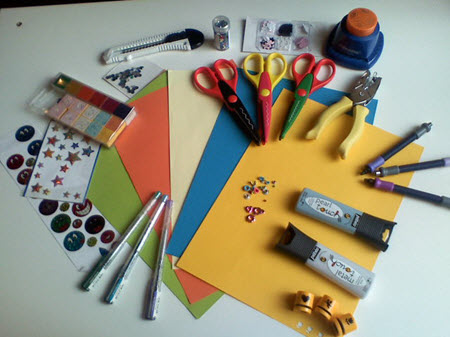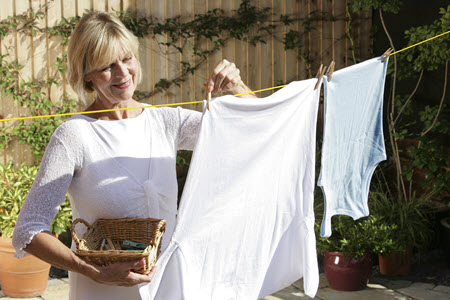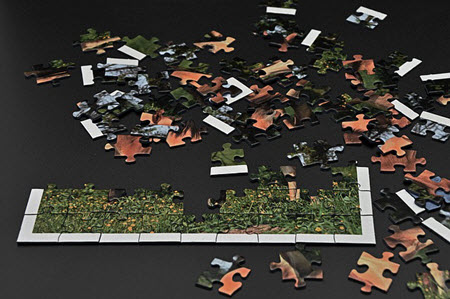Taking care of patients affected by dementia is an incredibly daunting task. You have to ensure their safety while making sure you provide activities that can stimulate them physically, mentally and emotionally. Without the right plan, there’s a good chance that you’ll feel overwhelmed for the rest of the day.
To help you plan activities for dementia patients, here are some of the things you can start with.
1. Scrapbooking activities

Scrapbooking is a great activity for dementia patients since it allows them to reconnect with the special people in their lives. The activity doesn’t have to be grand or involve complex art materials. You don’t even have to spend a good chunk of money in securing decorative pieces for it.
For example, you can create a scrapbook and have your patients assemble their families’ photos in them. You can ask them to sort the pictures according to subject, date or event. It can also help if you can make them write notes on the back of the pictures to help them reminisce.
In case you are planning on doing the activity more than once, you can use a photo album that has plastic sleeves so that it’ll be easier to mix and match the photos without ruining them.
2. Housework and daily tasks

Since most patients who are suffering from the condition also struggle with low self-esteem, having them participate in daily household tasks can make them feel empowered and independent. In choosing the activities you’ll designate to them, make sure that you consider their capabilities and safety.
Folding clothes, linens and towels, for example, is a good activity for them since it isn’t too complicated or heavy. They can also organize household items, like cans , kitchen utensils and containers.
Make sure to be give positive affirmation when they complete a task well.
3. Gardening activities

Planting is a good way to relieve stress. It can also create a sense of accomplishment and purpose for the patients. If done with other people, gardening can foster belongingness and a sense of community. It’s a good way to help maintain their skills while exercising the mind and body.
You can ask your patients to participate in planting, pulling out weeds or transferring plants to bigger pots in the garden. You can also assign light gardening activities to them, such as watering the plants every morning.
To ensure their safety while gardening, avoid giving them sharp tools to work with and make sure that their gardening tools are accessible. Do not allow them to do any activity during the hottest times of the day and keep in mind to make them wear sunscreen.
Also Read: 16 Fun Activities for Seniors and Elderly Patients
4. Music therapy

Music is a good tool in uplifting the spirits of dementia patients. It’s also helpful in reducing their stress level and evoking their emotions and memories.
You can ask them to talk about their favorite songs or what track they usually play to address their moods. Another good activity is to play their song choice and sing along with it. You can also have them list down the lyrics to enhance their ability to recall.
Music therapy can be a single or group therapy. If your patients are ambulatory, they can dance to the music which can greatly help them socialize. It can bring closeness and security to the group, especially when it ends up with exchanging hugs and warm words.
5. Puzzles and games

Puzzles made up of large pieces, such as floor puzzles, are a great help for dementia patients since the activity can help enhance their cognitive skills. In choosing your pieces, make sure that they aren’t children-oriented. Instead of choosing puzzles with cartoon characters, try to pick ones designed with animals or scenery.
You can let your patients play Scrabble, too. There are large print versions you can find in your local store or from online shops. Their tiles typically measure around 2.4cm which make them easier to hold and manipulate. Dominoes is a good option as well especially when it comes tp matching and sorting.
6. Cooking

Cooking is one of the most overlooked activities for dementia patients. A lot of caregivers feel reluctant about letting their patients help them out in the kitchen for fear of injuries.
The truth, however, is that cooking is a fun activity. You just have to know how to stick with the basics and avoid complicated recipes. Baking cookies and cupcakes, for example, don’t require any special techniques or ingredients. You can ask your patients to help you measure the dry ingredients and place them in the bowl for mixing. They can also help you in designing them with icing and colorful toppings.
You can also help them serve finger foods. This will give them the independence to choose and prepare the snacks they want.
7. Art activities

Art is a great way to help patients express their emotions and ideas. It can also help affirm and evaluate themselves.
Painting and drawing allow them to represent their thoughts and feelings whenever they are having a hard time with verbal communication. Since language is one of the first things that the disease affects, you have to encourage your patients to explore other means of expressing themselves.
Art activities don’t have to involve complicated tools and media. In fact, they can be as simple as finger painting or having your patients fill in colorful painting books. If they are still capable, you can encourage them to do sculpting, too.
Also Read: 15 Stress Relieving Hobbies For Nurses (#13 is Unusual!)
Conclusion
Taking care of dementia patients requires time, patience and understanding on your part. Since they are experiencing progressive loss of their mental functions, you have to pay more attention to their needs as well as their safety.
Activities for dementia patients are not that difficult to plan. You just have to know what an activity can contribute to your patients’ well-being. Aside from that, you should also consider your patients’ capabilities to carry it out. If an activity can provide stimulation, stress relief and sense of independence, it can surely do a lot for them.


















